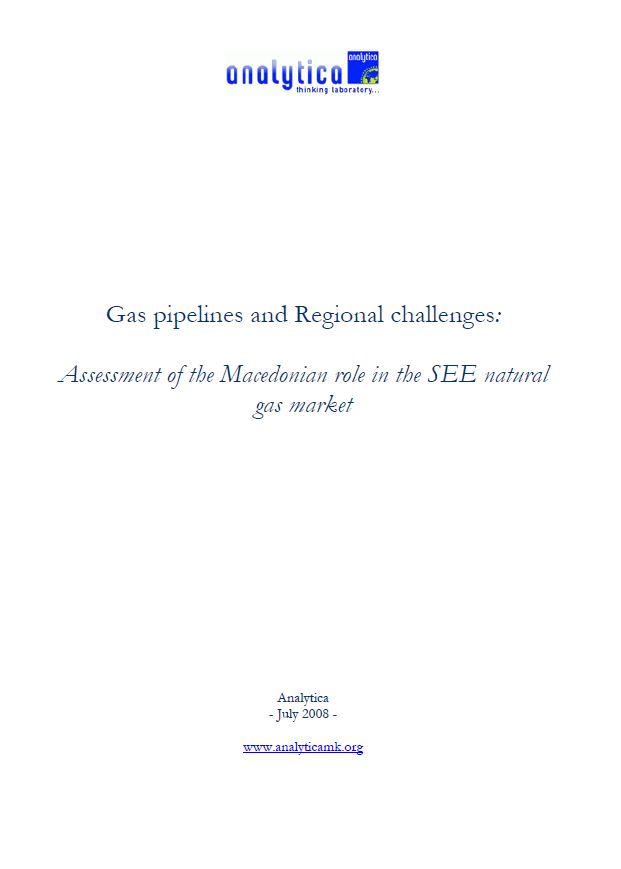Gas Pipelines and Regional Challenges: Assessment of the Macedonian Role in the SEE Natural Gas Market
Gas Pipelines and Regional Challenges: Assessment of the Macedonian Role in the SEE Natural Gas Market
Author(s): Author Not Specified
Subject(s): Energy and Environmental Studies, Environmental and Energy policy, International relations/trade, Economic development, Geopolitics, Transport / Logistics
Published by: Аналитика Тинк-тенк Организација
Keywords: North Macedonia; natural gas; energy; gas market; energy crisis; geopolitics; energy stability; energy policy; transporting gas; transport routes; gas pipelines;
Summary/Abstract: Today, we live in an “era of energy” when most of the political debates are directed towards ensuring the availability and security of supply of energy. Across the world, the countries are caught in the grip with the raising energy demand and prices. On the European continent the energy crisis and debate over energy security and sustainability are concentrated on two issues: the high dependence on energy import and the increasing need for diversification of the energy sources. The current debate is all about the geopolitics of supply of the natural gas, as leading energy source and the pillar of the energy stability in the continent. A decade ago, the European Commission has adopted several important documents concerning measures that safeguard the security of natural gas supply and regulate the internal natural gas market. The most recent one, the Energy Policy of EU from 2007 has projected that even with the current targets on energy efficiency and renewables, oil and natural gas will still continue to meet half of the EU’s energy needs, with the import of natural gas exceeding 80% by 2030. Moreover, taking into consideration that the electricity generation in EU remains heavily dependent on natural gas, the 2007 Energy Policy reaffirms the security of supply of natural gas as a paramount for Europe’s security and economy. The other important part of the EU energy strategy concerning natural gas is the diversification of its energy sources. In order to diminish the role and the political influence of Russia as the biggest supplier of Europe with natural gas, EU has turned to find new sources and best transit routes to transport the natural gas to Europe, at the same time avoiding Russian territory.
Series: ANALYTICA - Thinking Laboratory
- Page Count: 9
- Publication Year: 2008
- Language: English
- Content File-PDF

